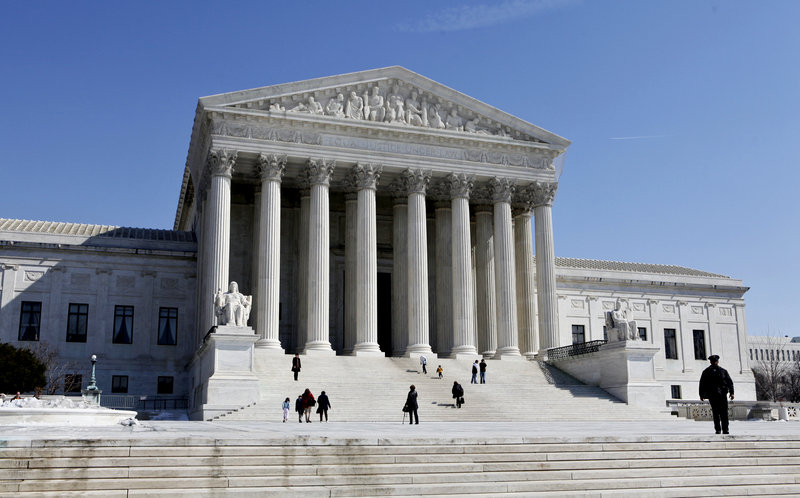WASHINGTON — Supreme Court justices disagreed Monday over whether states can require would-be voters to prove they are U.S. citizens before using a federal registration system designed to make signing up easier.
Arizona and other states told the justices the precaution is needed to keep illegal immigrants and other noncitizens from voting. But some justices asked whether states have the right to force people to document their citizenship when Congress ordered the states to accept and use federal “motor voter” registration cards that only ask registrants to swear on paper that they are U.S. citizens.
“I have a real big disconnect with how you can be saying you’re accepting and using, when you’re not registering people when they use it the way the federal law permits them to,” Justice Sonia Sotomayor said to Arizona Attorney General Thomas C. Horne.
Said Horne: “It is the burden of the states to determine the eligibility of the voters.”
This is the second voting eligibility issue the high court is tackling this session. Last month, several justices voiced deep skepticism about whether a section of the Voting Rights Act of 1965, a law that has helped millions of minorities exercise their right to vote, especially in areas of the Deep South, was still needed.
The court will make decisions in both later this year.
In Monday’s case, the court is deciding the legality of Arizona’s requirement that prospective voters document their U.S. citizenship in order to use a registration form produced under the federal “motor voter” registration law. The 9th U.S. Circuit Court of Appeals said that the 1993 National Voter Registration Act, which doesn’t require such documentation, trumps Arizona’s Proposition 200 passed in 2004.
Arizona appealed that decision to the Supreme Court.
The case focuses on Arizona, which has tangled frequently with the federal government over immigration issues involving the Mexican border. But it has broader implications because four other states – Alabama, Georgia, Kansas and Tennessee – have similar requirements, and 12 other states are contemplating such legislation.
The federal “motor voter” law, enacted in 1993 to expand voter registration, requires states to offer voter registration when a resident applies for a driver’s license or certain benefits. Another provision of that law – the one at issue before the court – requires states to allow would-be voters to fill out mail-in registration cards and swear they are citizens under penalty of perjury, but it doesn’t require them to show proof. Under Proposition 200, Arizona officials require an Arizona driver’s license issued after 1996, a U.S. birth certificate, a passport or other similar document, or the state will reject the federal registration application form.
Send questions/comments to the editors.



Success. Please wait for the page to reload. If the page does not reload within 5 seconds, please refresh the page.
Enter your email and password to access comments.
Hi, to comment on stories you must . This profile is in addition to your subscription and website login.
Already have a commenting profile? .
Invalid username/password.
Please check your email to confirm and complete your registration.
Only subscribers are eligible to post comments. Please subscribe or login first for digital access. Here’s why.
Use the form below to reset your password. When you've submitted your account email, we will send an email with a reset code.